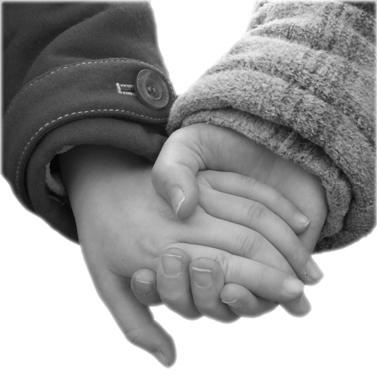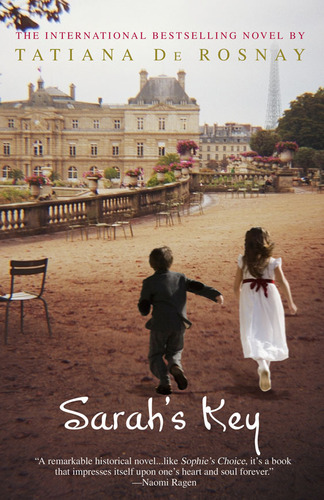
A few months back, I signed up for the War Across the Generations World War II Reading Challenge, because I’d read a lot of Holocaust-themed books this year, and had a bunch more waiting in mye in months, and after the flood TBR.
I realized I haven’t read anything for the challenge, and after the flood left my TBR (arranged in order of priority) in wild disarray, I spotted Sarah’s Key (#151 for 2009) in one of the stacks I was reshelving and I was reminded that I had two more books to read this year, so I decided to make some headway in completing the challenge.
 Sarah’s Key by Tatiana de Rosnay is a novel with two storylines. In Paris in 1942, 10 year old Sarah’s family is forced out of their home by the French police. Wanting to keep her brother safe, she helps him hide in their secret cupboard, and promises to come back for him when they are released.
Sarah’s Key by Tatiana de Rosnay is a novel with two storylines. In Paris in 1942, 10 year old Sarah’s family is forced out of their home by the French police. Wanting to keep her brother safe, she helps him hide in their secret cupboard, and promises to come back for him when they are released.
Sixty years later, journalist Julia Jarmond is writing an article on the Velodrome d’Hiver (Vel’ d’Hiv’) roundup in Nazi-occupied Paris in 1942, when she discovers a carefully concealed trail of secrets that twines Sarah’s life with hers. Sarah’s experience has a profound impact on Julia’s life, giving her a chance for a new life and a better future.
I’d never heard of this book until it was given to me earlier this year with a glowing recommendation, and I was glad to have another book to read for this challenge.
As a novel, I found Sarah’s Key average. I liked Sarah’s story but couldn’t really bring myself to care about Julia, maybe because for the longest time she was content to serve as a doormat for her obnoxious husband, and I found myself wanting to skip to the chapters with Sarah’s story, which was many times more compelling.
But I never realized I’d learn so much from this book, particularly on the Vel’ d’Hiv’ roundup, which was obscured in history until recently.
I had no idea the French had their own Holocaust experience, but in July 1942, the greatest mass arrest of Jews in France was carried out in the Vel’ d’Hiv’ roundup, by French policemen under Nazi orders. Thousands of Jews were arrested and crammed into the Velodrome (an indoor racetrack near Eiffel Tower) with minimal food and water for over a week, before they were shipped out to concentration camps such as Drancy or Auschwitz.
It was a very controversial issue that the French government declined to acknowledge until 1995, when Jacques Chirac issued a statement that restored this event to historical memory:
“These black hours will stain our history forever and are an injury to our past and our traditions. Yes, the criminal madness of the occupier was supported (‘secondée’) by the French, by the French state. Fifty-three years ago, on 16 July 1942, 450 policemen and gendarmes, French, under the authority of their leaders, obeyed the demands of the Nazis. That day, in the capital and the Paris region, nearly 10,000 Jewish men, women and children were arrested at home, in the early hours of the morning, and assembled at police stations… France, home of the Enlightenment and the Rights of Man, land of welcome and asylum, France committed the irreparable that day. Breaking its word, it delivered those it was protecting to their executioners.”
Learning about a new set of atrocities committed during World War II sent shivers down my spine, as I realized that despite the fact that it is fictional, Sarah’s story is only one of the thousands of Vel’ d’Hiv’ stories that never had the chance to be told.
I salute Chirac for giving France the chance to face up to its past and honoring the memory of the thousands of Jews that were persecuted by their fellowmen in the events of Vel’d’Hiv’. A little too late, true, but better than never.
Memory is the best atonement that a future generation can offer the victims of the past, a constant reminder of the atrocities committed against innocent lives, and a solemn promise to never let it happen once again.
One more book (or two — I found a new one last week) and my World War II Challenge is completed. It’s certainly been one of the most worthwhile reading challenges I’ve joined in.
***
My copy: trade paperback (gift)
My rating: 3.5/5 stars.

This sounds interesting. Do you know if it has been published in Europe?
Wow, I didn’t know that something like this had happened in France. It’s crazy that huge events like this can be so easily buried in the past just because people refuse to acknowledge them. Good for Chirac and de Rosnay for brining this event, and now it impacted so many lives, to light.
@Lindylou- published by John Murray in Europe
http://www.amazon.co.uk/Sarahs-Key-Tatiana-Rosnay/dp/0719524520/ref=sr_1_1?ie=UTF8&s=books&qid=1257186232&sr=8-1
@Alita- I didn’t know about it as well, and reading the book was an eye-opening experience.
I added your review here on War Through the Generations.
Thanks Anna! I am reading at least two more for the challenge before the year ends.